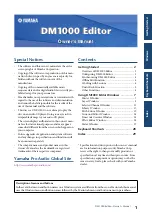
DDL Compiler Commands
Data Definition Language (DDL) Reference Manual — 426798-002
9- 28
COMMENTS Command
COMMENTS Command
The COMMENTS command directs the DDL compiler to store dictionary comments
specified by the user in an open dictionary
.
COMMENTS
stores any subsequent dictionary comments specified by the user in an open
dictionary.
NOCOMMENTS
halts processing of dictionary comments specified by the user. NOCOMMENTS is
the default setting.
COMMENTS Command Guidelines
The following points are guidelines for using the COMMENTS command:
•
After comments have been stored in the dictionary, they can be selectively passed
to any open DDL, REPORT, or host-language source output files with the
CLISTOUT command.
•
The comments associated with an object can be more than one line long.
•
Any comments that immediately precede the definition of an object are associated
with that object.
•
Any comments that immediately precede the definition of an element in a group
definition or record are associated with that element.
•
For more information on comments, see
CLISTOUT Command
on page 9-20, and
DDL Comments
on page 2-9.
COMMENTS Command Examples
In the following example, the two starred comment lines preceding the group definition
of NAME are stored as a single comment associated with NAME in the open dictionary,
and three starred comment lines are each associated with an element within the group
definition NAME. The comments are also written to the open COBOL source file
COBSRC, where they are inherited by the definition CUSTNAME, which refers to
NAME.
?DICT
?COBOL cobsrc
?COMMENTS
?CLISTOUT
?NOTIMESTAMP
* An expanded name in the following sequence:
[ NO ] COMMENTS
















































